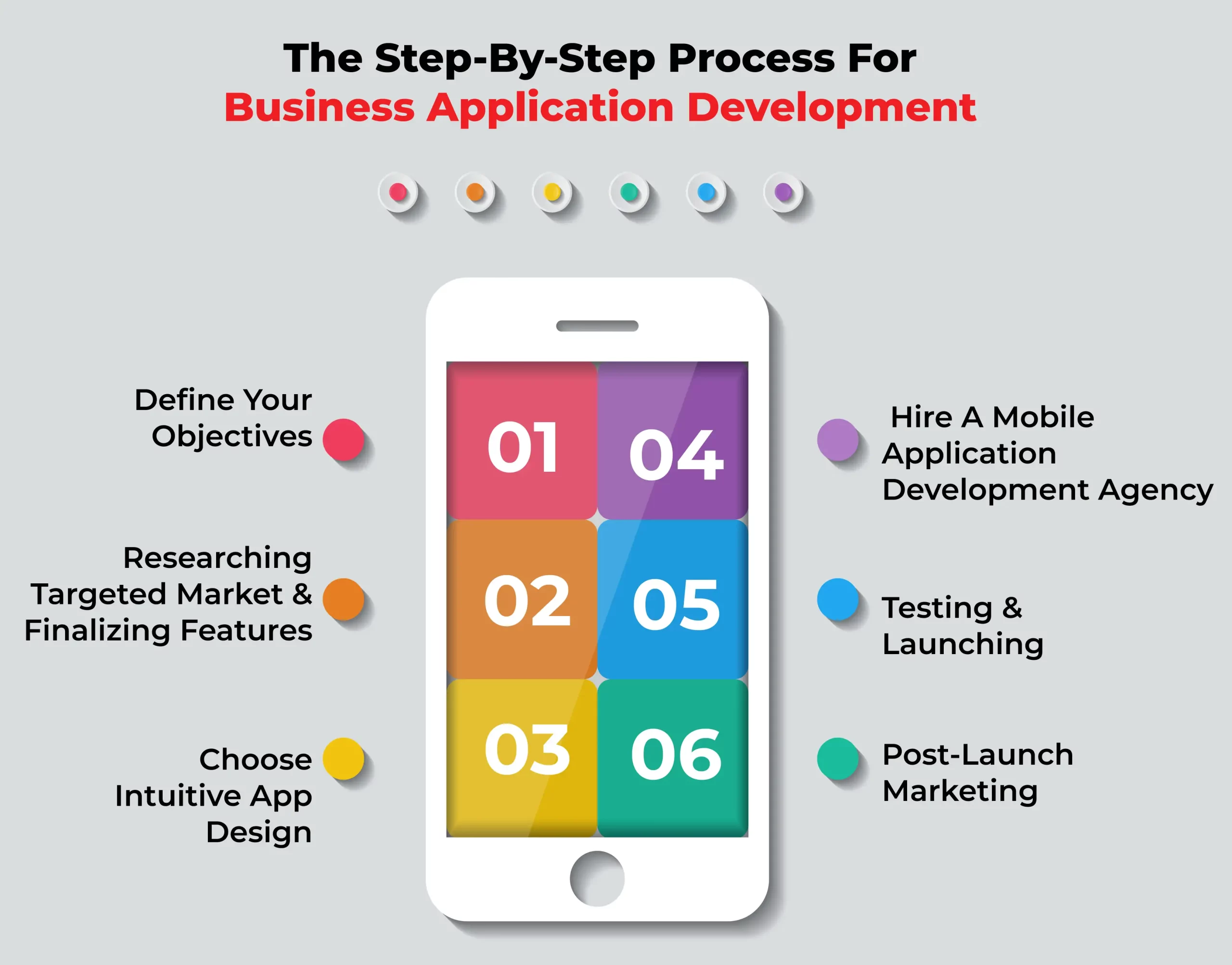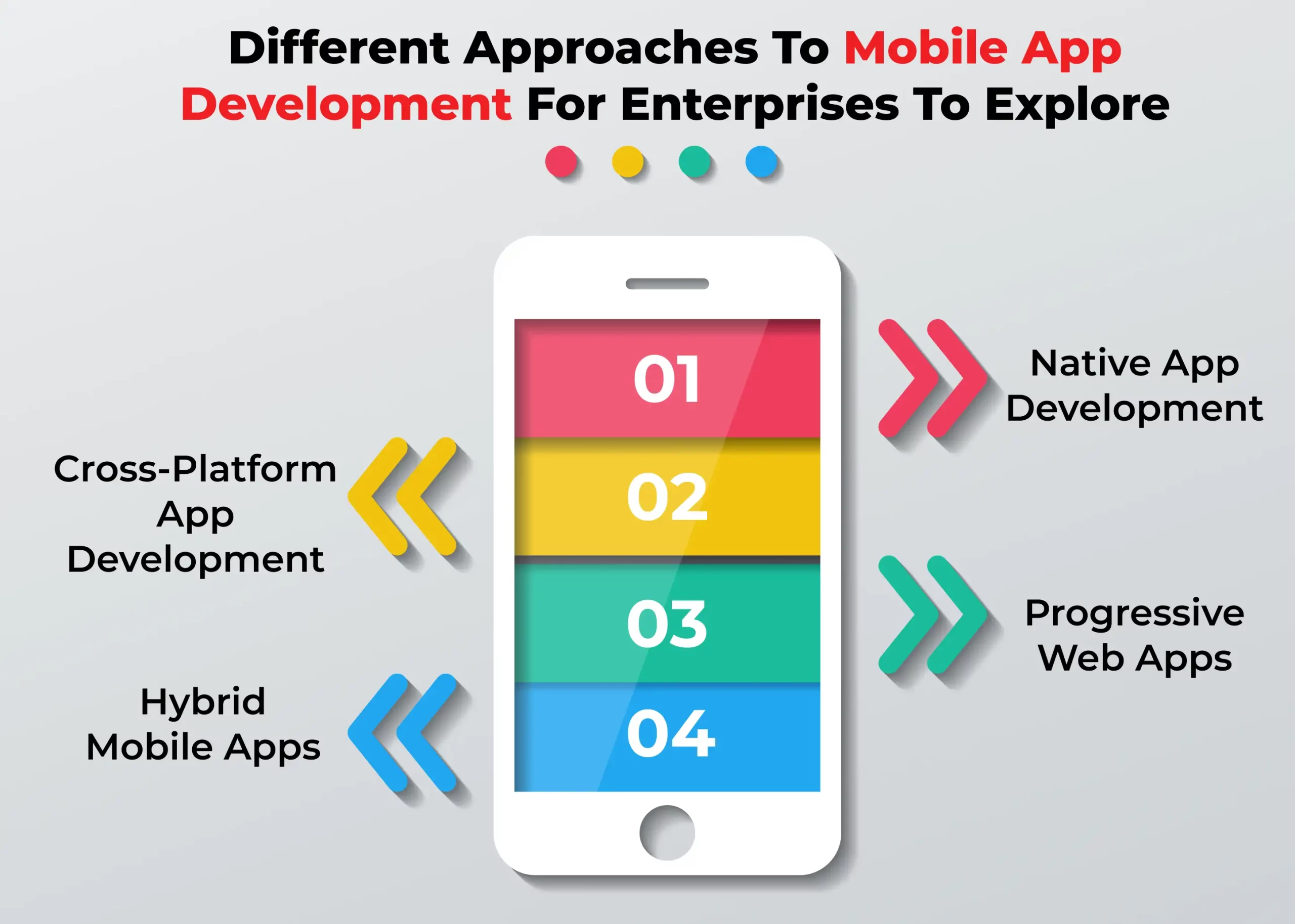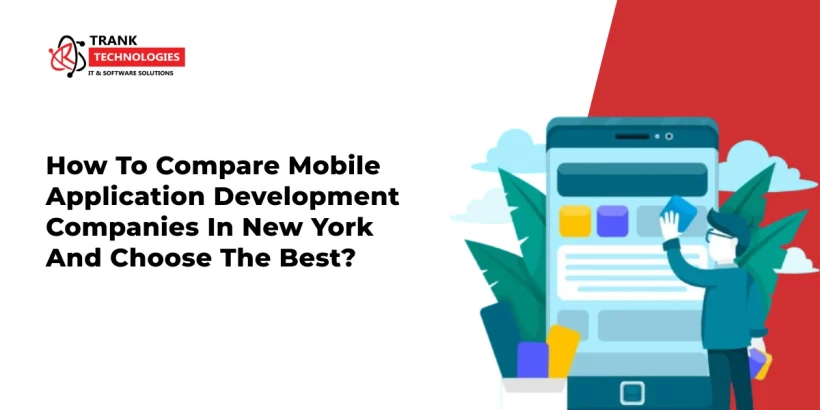
Mobile App Development For Enterprise: Explore Benefits, Types & Process
Are you starting your own business while looking at other successful startups and wondering how they made it? Are you looking for an idea that turns your vision into reality? No worries if you have stumbled while facing many challenges regarding implementing the plans you have envisioned for your business; that’s when the need for the best mobile application development agency is highlighted.
This comprehensive blog post will explain the essential steps and benefits of corporate mobile development and share valuable insights on the types of business app development an enterprise can explore for growth.
Why Is Mobile App Development For Enterprises Significant?
Mobile apps have become essential for businesses of all sizes that want to grow rapidly and reach their target audiences. As a business owner, you should never ignore the benefits of business app development and miss out on an excellent opportunity for growth and engagement. Here are the top 5 benefits firms can leverage from business application development.
Offers Customers More Value
The business landscape has swiftly evolved in recent years, requiring companies to use technology for customer transactions, made possible by corporate mobile development. Mobile apps have revolutionized shopping by meeting growing consumer expectations and making goods/services more accessible. Shifting to online business apps provides incredible value to customers through convenience and accessibility.
Brand Building
Do you want your customers to stay connected to your brand? You must add value to your customers and provide a great brand experience to achieve this. Hiring a mobile application development agency is significant, as apps are becoming integral to everyday life. The more branding elements implemented in your app, the better the impact a business owner can expect on brand marketing outcomes. For this, having a well-developed mobile application is essential.
Engaged Customers
Increasing customer engagement is one of the best ways to increase revenue generation and brand awareness. If you successfully boost how frequently your audience engages with your brand, you will experience an increase in ROI, customer lifetime value, and other vital metrics.
Niche Competition
In this ever-transforming digital landscape, keeping up with your contenders is challenging. A mobile app provides multiple advantages that give business owners an edge over competitors. Compared to traditional websites and other digital platforms, mobile apps do a much better task regarding speedy communication and enhanced customer experience.
Personalized Marketing
Another sector that can be affected by business app development is the marketing department. The information acquired from user interactions with the app can significantly help to enhance marketing campaigns and initiatives.
How To Develop A Business Application?
For business owners thinking about the business application development process, here are the specific steps described briefly to help you determine the complete process of building a business app that looks attractive and increases the number of potential users.

1 – Define Your Objectives
When hiring an agency for mobile app development for an enterprise, having clarity regarding goals is efficient. What do you want to achieve? What issues do you want to solve with the help of your application? Business goals are very important in determining the entire app development process. To have your dream business application, it’s significant to set measurable goals to ensure you will use your valuable time and resources efficiently.
2 – Researching Targeted Market & Finalizing Features
After deciding your goals for corporate mobile development, the next step is to research the target market and finalize the features you want to implement in your application. Conducting more research to discover your targeted audience will help you understand how consumers interact with your brand, market dynamics, and more.
On the other hand, to ensure the right features are integrated into your app, you must identify the essential features to serve your users in the best possible way. Adding Including popular app features is appealing. However, unnecessary features may leave your users frustrated. Moreover, it is essential to note that the more features you add, the more cost will be added, and the overall process of developing an app will be stretched.
3 – Choose Intuitive App Design
What is the first thing your potential customers see when they open your application? It is not the features but how your app looks and interacts with users through its appearance. Ensure all the features you integrate into your app are user-friendly and controllable. This is what makes your application appealing to the new user.
Any business app’s effectiveness can be measured by the optimal combination of the way it looks and functionality. Considering these, ensure your app is intuitive, simple, engaging, and tailored to your goals.
4 – Hire A Mobile Application Development Agency
Hiring a reliable mobile application development agency is the next step after completing market research, finalizing features, and choosing the right intuitive app design. The experienced and trusted agency mobile app development for enterprises ensures that your app includes all the latest features and functionalities at affordable costs. They have a dedicated team of UI/UX designers, project managers, app developers, and market specialists. The complete squad always considers your business goals and offers valuable suggestions.
5 – Testing & Launching
When you decide to have an application for your business, it’s very important to keep testing it. Testing is a process to make sure your app is bug-free. This process includes the app’s performance, content, and user experience. Proper application testing can ultimately reduce much of the overall cost and time. Identifying bugs through testing and fixing them within a specific time frame is paramount to significantly improving your reputation as a service provider.
After testing and fixing all the available errors, your app can be submitted to Apple’s app store or Play store (depending on the app). However, complying with Google and Apple’s developer guidelines is essential when submitting your app to the Play Store or app store. Also, you may have to align your monetization strategy with their requirements.
6 – Post-Launch Marketing
Your responsibility towards your business does not end when it is launched on the Play Store/App Store. How would your users download your app without being aware of it? Hence, the most crucial step in the entire business app development process is marketing.
To spread all the information about your app and attract potential customers to explore it, it is advisable to make informative content and videos to display your app’s core functionality and purposes. Social Media plays a very important role here, as digital platforms are the only way to reach every corner of the world.
Also Read: How Much Does It Cost To Create An App In 2025?
Types Of Business Application Development Enterprises Can Explore
There are certain advantages and disadvantages to building an application, and it heavily depends on the approach you choose to use. There are different approaches available that can be acceptable for corporate mobile development purposes and deliver the user experience and features an app needs to succeed.

Here are the common approaches to mobile app development for enterprises to try out according to their short-term and long-run objectives.
1 – Native App Development
Native application development is creating an app built on a specific platform or device like iOS or Android. Because native apps are developed on a particular platform, they can use device-specific hardware and software programs.
Pros
- Fast & Responsive Software Performance
- Push Notifications
- Braod Functionalities
- Quality Assurance Through Ratings In Application Store
Cons
- Lengthy Downloading Time
- Takes Excess Time
- Higher Costs
2 – Cross-Platform App Development
Cross-platform mobile app development involves making an app that works on multiple OS with one code base. This approach contrasts with the native app development process, where one dedicated code is written for each specific platform.
Pros
- Reusing Existing Code
- Releases App Faster
- Helps Maintain Quality
- It helps maintain platform differences
Cons
- Lose user experience
- Maintaining it may become harder over time.
- Tool imitations
3 – Progressive Web Apps
Progressive web apps (PWA) are built with web technologies like HTML, CSS, and JavaScript, providing user experience like a platform-specific app. The benefits of progressive web apps as platform-specific apps are that they are easy for users to access and have dedicated UI, OS integration, and App Store integration.
Pros
- Enhanced user experience
- Speedy performance
- Always up-to-date
- Accessibility
Cons
- Limited functionality
- Incomplete feature support
- Dependence on Web Technologies
4 – Hybrid Mobile Apps
A hybrid application combines the elements of a native application (an app built for a specific platform like Android or iOS) and a web application. It is built with popular front-end technologies like HTML5, Javascript, and CSS, providing cross-platform functionality. Developers only need to write code once for a mobile app, saving time and accommodating various platforms like Android and iOS.
Pros
- Greater reach
- Easier to scale
- Lower cost
- Low maintenance
- Access to all device features
Cons
- Slow performance
- Test complexity
- Inconsistency UI/UX issues
Conclusion
We hope this business application development guide has provided a thorough understanding of the corporate mobile development process and why having one is crucial for expanding your company. The best practices for developing business apps have been discussed, along with their advantages and disadvantages. Even so, every firm has its long-term aims and ambitions. Nonetheless, businesses can review all the app development methodologies mentioned above and select the one that best fits their objectives.







